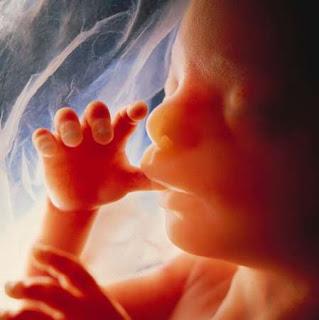 I, and a number of other Loreto Theology staff and students, recently attended a debate between American philosopher William Lane Craig and Oxford Chemist Peter Atkins. Craig arguing that science, when applied to philosophical propositions, provides strong evidence for God; Atkins taking the opposite position.
I, and a number of other Loreto Theology staff and students, recently attended a debate between American philosopher William Lane Craig and Oxford Chemist Peter Atkins. Craig arguing that science, when applied to philosophical propositions, provides strong evidence for God; Atkins taking the opposite position.Craig opened with the Cosmological argument. He argued that the consensus among scientists is that the universe has a beginning. As something cannot come from nothing, there must have been a transcendent reason as to why the universe came into existence - this transcendant reason is God - a supremely powerful, disembodied consciousness. Atkins had a variety of responses, one being the multi-verse theory. Craig countered that by multiplying the number of universes did not avoid the initial question of why something rather than nothing exists, and therefore God still remains as the best reason for the universe's existence. Atkins countered that just because we do not know how the universe started, we should not assume God did it. Craig's response was that science uses empirical investigation to gain knowledge, and as there was nothing before the universe (science agrees with this claim) therefore science has nothing to say about anything before it, as 'nothing' cannot be empirically investigated. Philosophy however, tells us that God is a good reason for the existence of the universe.
Craig's also used the argument that in our experience some actions are objectively wrong, eg rape or child abuse, and that without God there can be no objective morality. Atkins more or less agreed with this, explaining that morality has evolved to help us survive and is no more than that. The key issue here is that without objective morality, no action can really be said to be wrong - it can only be said to go against the survival of our species. This is different to saying that it is actually wrong however. I believe Craig argued successfully argued that if we want to consider morality to objective there must be an authority on which the morality is based - and this authority is God. Of course one could simply deny that morality is objective, but this can lead to some uncomfortable conclusions.
Craig's final point was based on the resurrection of Jesus. His argument was that given the evidence of the empty tomb, the resurrection appearances and the actions of the early Christians, the best explanation is that Jesus really did rise from the dead. This is then, strong evidence for the Christian God. Atkins initially dismissed this rather flippantly as being a rather fanciful idea. Craig however was unperturbed and pointed that all other explanations of the events, eg the disciples stealing Jesus' body, had even less evidence and create more questions than they answered, such as why would they steal his body and then go on to be persecuted and killed to support what they knew to be a lie.
This was a fascinating and engaging debate. I think it must be said though that it probably did not change anybody's mind with regards God's existence. It seems that the real reason people believe is not because of logical argument, but rather because of their own personal experience of the world (and of God?) and their relationship with it.
The real importance of debates like this, I believe, is that they re-address the balance of the arguments put forward by the rather aggressive 'New Atheist' movement. These debates show that believing in God can still be a rational option for modern scientifically minded people.
As to whether God really does exist or not? Well I suppose God only knows...
Here is a link to Craig debating Atkin's in 1998 - unfortunately the new debate is not available.




